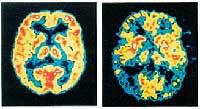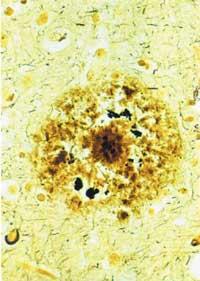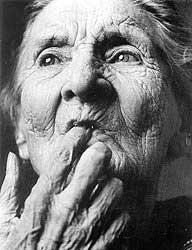Alzheimer's disease: an important step
2001/08/24 Carton Virto, Eider - Elhuyar Zientzia
Science magazine has released two very useful researches to better understand and investigate Alzheimer's disease. The first was held at the Mayo Clinic in Florida and the second in Switzerland at the University of Zürich. One confirms the other.
The brains of Alzheimer's patients have two common characteristics: some cells contain large amounts of proteins called tau and in extracellular regions plates formed by b-amylase.
For years it has not been known which of these two lesions was the cause of Alzheimer's disease. It is currently assumed that both act, but researchers know little about the relationship between tau protein and B-amylase plates. Until recently they knew nothing to interact with. In fact, research at the Mayo Clinic and the University of Zurich has confirmed the interaction and demonstrated how this happens.

Transgenic mice with tau proteins and B-amylase plates were created at the Mayo Clinic. The lack of access to animals with the two lesions together has been a major obstacle in the investigation of Alzheimer's disease. The researchers crossed mice that synthesized too many tau proteins and a precursor of B-amylase that they produced in excess, they observed that in the brain of the resulting transgenic mice more tau proteins were produced. Specifically, mice with both lesions produced 10 times more tau proteins than those without plaques. Consequently, researchers believe that B-amylase plates somehow excite the synthesis of the tau protein.
At the University of Zurich, from another study, the same conclusion was obtained. B-amylase was injected into mice that synthesized an excess of tau proteins and, over and over, the synthesis of tau protein was accelerated.
Therefore, they have shown that both injuries are related. But not only that. They have created a very useful transgenic mouse to investigate Alzheimer's disease.
Additional information:

Gai honi buruzko eduki gehiago
Elhuyarrek garatutako teknologia





